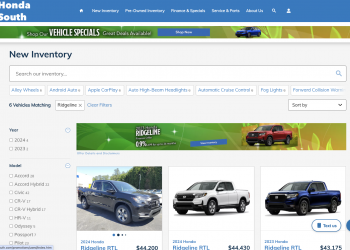Artificial Intelligence (AI) has clearly impacted many business sectors, but it is particularly powerful in the manufacturing and automotive industries. The demand for vehicles that match the intelligence of our smartphones and computers has become a reality, thanks to the remarkable capabilities of AI. The profound influence of AI extends across diverse industries; its presence in the automotive sector has proven to be immensely transformative.
From the use of industrial robots in production factories to the development of self-driving vehicles, AI has significantly impacted the automotive industry in multifaceted ways. Esteemed names in the automotive world, such as Mercedes-Benz, Toyota, Volkswagen, Tesla, Volvo, Bosch, and many others, are actively embracing AI technology to elevate the customer experience to new heights. The integration of AI in the automotive industry has ushered in a new era of innovation and efficiency, propelling the sector into a future where AI-driven vehicles are poised to redefine transportation. Let’s explore some of the significant use cases of AI in automotive industry.
AI use cases in the automotive industry
The applications of AI in the automotive industry are vast and diverse, spanning the entire lifecycle of a vehicle, from design and manufacturing to sales and maintenance. Leading automotive brands actively integrate AI into their vehicles to enhance performance and user experience.
Let’s explore some common AI use cases in automotive industry:
Driver assistance
AI-enabled systems utilize sensors to assist drivers by providing features like steering assistance, pedestrian detection, and blind spot monitoring. These systems promptly alert drivers to potential dangers, empowering them to take preventive actions and reduce the risk of accidents.
Autonomous vehicles
Autonomous vehicles, equipped with self-learning and self-driving capabilities, represent the pinnacle of AI application in the automotive industry. By leveraging technologies such as machine learning, deep learning, and big data, these cars can operate with minimal human intervention while adhering to safe driving practices and traffic regulations. Although there are still regulatory challenges, the widespread adoption of fully autonomous vehicles is becoming increasingly tangible.
Driver monitoring
AI algorithms are employed to monitor whether the vehicle’s regular driver is present. When identified, the system automatically adjusts mirrors, seats, and temperature settings according to the driver’s preferences. Moreover, AI can track the driver’s eyes and head position to detect signs of drowsiness and issue alerts accordingly.
Personal assistant
AI-enabled personal assistants in cars offer various functionalities similar to popular third-party voice assistants like Alexa and Siri. These AI assistants can make calls, adjust temperature settings, change radio stations, play music, provide information on fuel levels, and more. Over time, they can also adapt and learn user preferences, offering personalized recommendations and adjustments.
Passenger experience
To enhance passenger experience and safety, automotive manufacturers integrate AI technologies like natural language processing (NLP) and computer vision. Passengers can use voice commands to listen to music, order food, and engage in other activities during their journey.
Supply chain management
Managing the complex supply chain in the automotive industry is made more efficient with AI and machine learning (ML) integration. AI helps create a fully automated system for monitoring the transportation of vehicle components from various parts of the world, optimizing volumes and routes based on expected demand spikes.
Automotive insurance
AI plays a vital role in automotive insurance, benefiting both insurers and drivers. AI algorithms expedite the claims process by enabling drivers to collect incident data easily and fill out claims accurately. For insurers, AI helps process images and analyze vehicle damage, leading to faster and more efficient claims processing.
Quality control
AI-based data annotation and inspection systems facilitate thorough quality control of vehicles. Manufacturers can detect even the smallest defects at an early stage, leading to faster issue resolution and improved turnaround time.
These are just a few use cases of AI in the automotive industry that is redefining vehicle design, development, and driving experiences for the future.
Conclusion
The impact of AI in the automotive industry is undeniably profound. As AI continues its evolution and maturation, we can anticipate even greater advancements that will shape the future of transportation for generations to come. By harnessing the potential of AI in the automotive industry, the automotive sector is driving us toward a safer, more efficient, and more connected future on the roads. To stay at the forefront of this ever-evolving landscape, automotive brands may continue to invest in AI development services and innovation, driving the industry into a brighter and smarter tomorrow.









